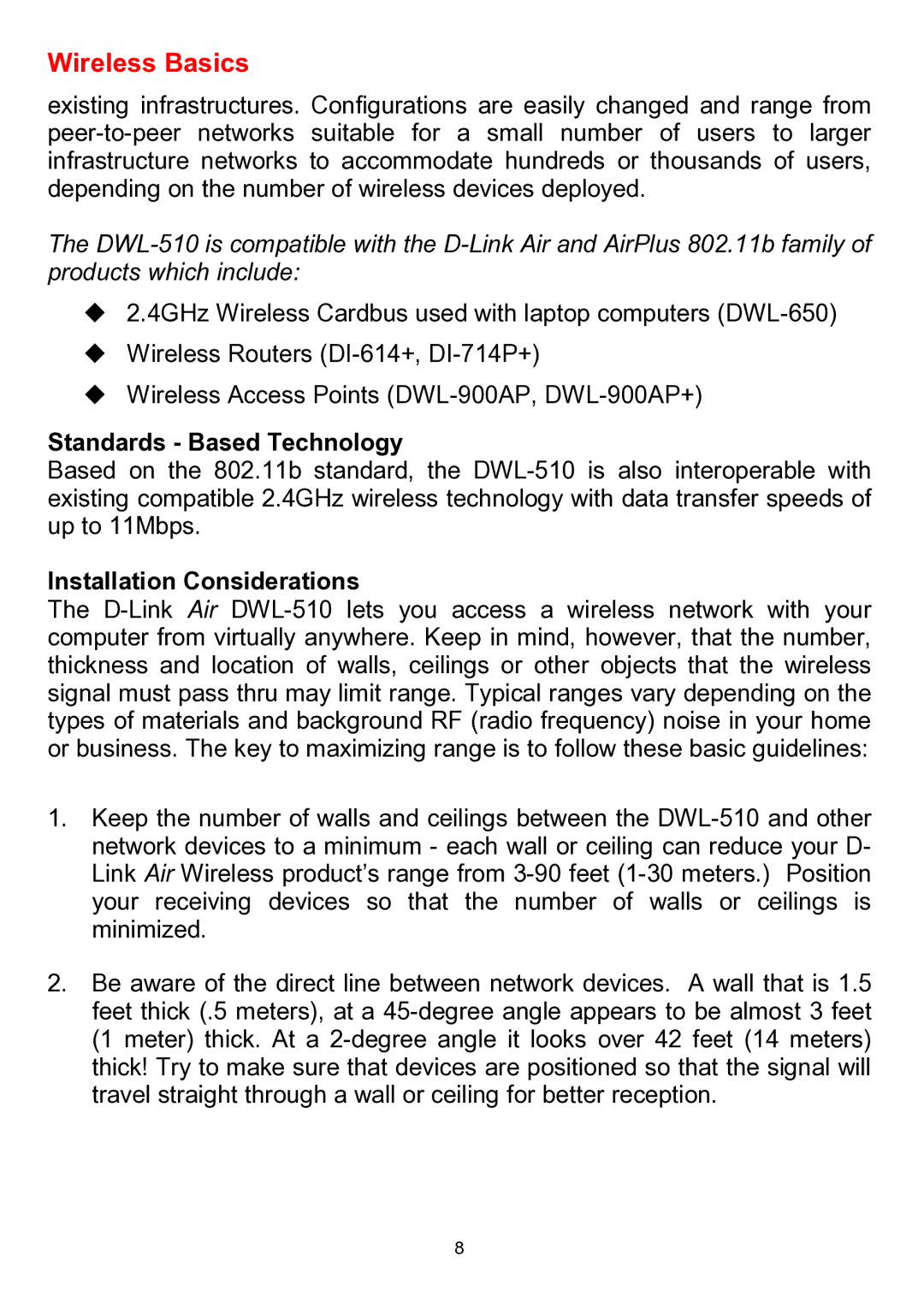Wireless Basics
existing infrastructures. Configurations are easily changed and range from peer-to-peer networks suitable for a small number of users to larger infrastructure networks to accommodate hundreds or thousands of users, depending on the number of wireless devices deployed.
The DWL-510 is compatible with the D-Link Air and AirPlus 802.11b family of products which include:
2.4GHz Wireless Cardbus used with laptop computers (DWL-650) Wireless Routers (DI-614+, DI-714P+)
Wireless Access Points (DWL-900AP, DWL-900AP+)
Standards - Based Technology
Based on the 802.11b standard, the DWL-510 is also interoperable with existing compatible 2.4GHz wireless technology with data transfer speeds of up to 11Mbps.
Installation Considerations
The D-Link Air DWL-510 lets you access a wireless network with your computer from virtually anywhere. Keep in mind, however, that the number, thickness and location of walls, ceilings or other objects that the wireless signal must pass thru may limit range. Typical ranges vary depending on the types of materials and background RF (radio frequency) noise in your home or business. The key to maximizing range is to follow these basic guidelines:
1.Keep the number of walls and ceilings between the DWL-510 and other network devices to a minimum - each wall or ceiling can reduce your D- Link Air Wireless product’s range from 3-90 feet (1-30 meters.) Position your receiving devices so that the number of walls or ceilings is minimized.
2.Be aware of the direct line between network devices. A wall that is 1.5 feet thick (.5 meters), at a 45-degree angle appears to be almost 3 feet (1 meter) thick. At a 2-degree angle it looks over 42 feet (14 meters) thick! Try to make sure that devices are positioned so that the signal will travel straight through a wall or ceiling for better reception.
